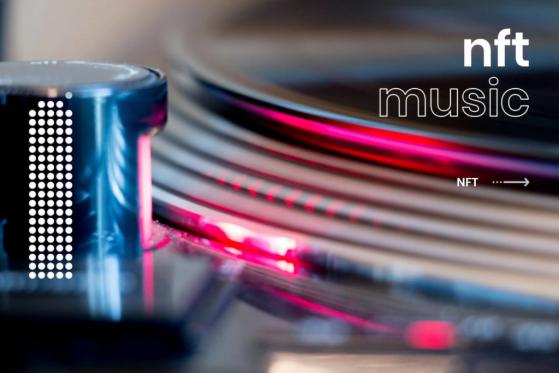With Square buying Tidal this week, many are questioning whether the partnership will lead to the release of NFT music on the music platform and help drive its mass adoption across the music industry.
Most of us use cheap and accessible music streaming services to follow our favorite artists. Youtube, Spotify (NYSE:SPOT), Apple (NASDAQ:AAPL) Music and Amazon (NASDAQ:AMZN) give us unrestricted access to music and charge a monthly subscription fee. Thanks to the cross-platform integration of these services, we can listen to our saved playlists on-the-go from any device. Sure it is not a perfect system, and artists only get a small cut for their music, but listening to music has never been more convenient for fans. NFT technology has the potential to disrupt the industry and bring in massive profits for artists. Thanks to NFTs, artists can be the publishers and the distributors of their music and receive the full cut for their releases. Not only will they be free from the regulations of companies and governments but their art will persist and remain available as long as the blockchain is running. Minting NFT Music on the blockchain also helps prove ownership and authenticity of the music. The Ethereum blockchain is the go-to solution for the time being, even with its high gas prices and highly power-hungry Proof-of-Work (PoW) consensus algorithm.
3LAU was the first artist to sell music as NFTs, and he sold some of his unreleased music for millions on the Ethereum blockchain, but others are following suit. Kings of Leon will be the first band to release an album as NFT and their tokens will unlock special perks like limited-edition vinyl and front row seats to future concerts. EDM duo Disclosure produced a new song live on twitch and minted it as an NFT, and sold it for 43 ETH on Zora.
Contrary to popular belief, the sale of NFTs does not usually give the buyer any rights over the music, it only allows them to resell that limited edition copy for any price they want and to whomever they want. Thus, NFT sales usually attract a lot of speculation over the value of the release. Many speculators bid very high for the releases, not in appreciation of the music itself but in expectation of large future profits. This can lead to dissatisfaction among loyal fans because they will have to contend with a marketplace where they stand little chance to buy exclusive content from the artist, since the material’s high price is born out of its scarcity.
NFTs can provide greater opportunities to upcoming artists who are adopting the technology as investors are looking to invest in them before they ‘blow-up’. Then, they can reap the rewards afterward by selling their early work. “By investing in an NFT or, for example, a social token, the fan engages in the potential for revenue growth. Whether this is through a resale factor, which usually holds a percentage for the artist in the smart contract, or through a secondary right attached to the token,” explains MusicxTechxFuture. Thus, NFT technology can facilitate the investment that artists need early on, but they must balance exclusivity with distribution since fans may feel disappointed with selling-out artists. Also every artist should keep in mind that his/her real fans understand the difference between artistic value and speculative value, which often is the basis of the high prices of NFT auctions.
NFTs still have a long way to go because in their current state, they still consume large amounts of energy and are extremely exclusive with limited usability. Fans want easy access to their music through platforms that allow them to make customized playlists with content from all of their favorite artists in one place, but the blockchain is yet to come up with a satisfactory service that can meet this need.
When transaction costs become negligible for the daily user (for example, if Proof-of-Stake algorithms are adopted) and mass tokenization is the chosen method by artists to release music, bringing down the price of each copy to a negligible value- in a future where there is a platform on which majority of the artists mint their music tokens on a large scale directly for their listeners, instead of selling over-priced and exclusive copies. The masses can listen to it on-the-go, and across platforms, NFTs will truly become the game-changer that they are claimed to be today. Theoretically, this is possible, and one day users may have to only shell out fractions of a cent for each copy of their music, which will probably add up to a lot less than paying a monthly subscription to the streaming services of today. They may have to pay more if they really listen to a large number of different songs, but that is the point, you will pay according to your consumption, and also you will never have to face the threat of losing your music if you stop paying the subscription. All your music will be in your music NFT wallet for as long as the blockchain stays up. Here’s to hoping that the industry takes this path that offers artists the benefit of selling music directly to their fans and gives fans greater access to their work.
